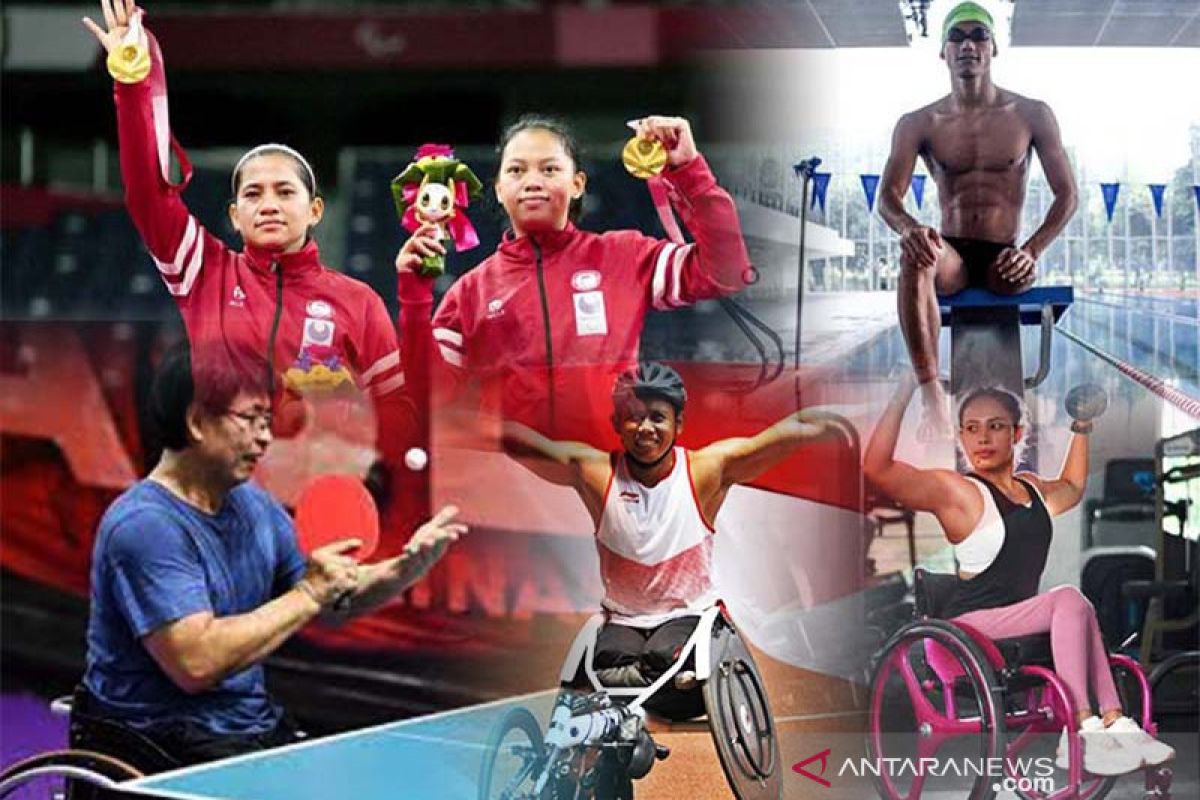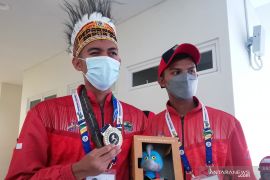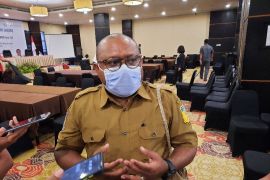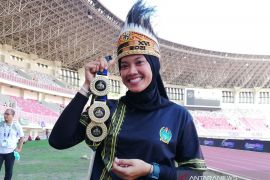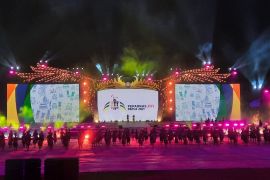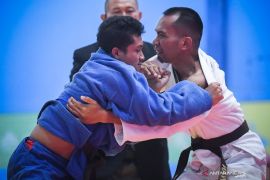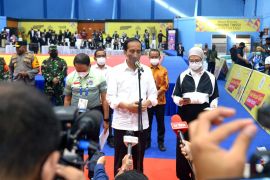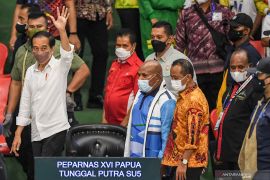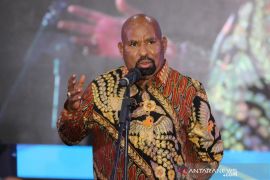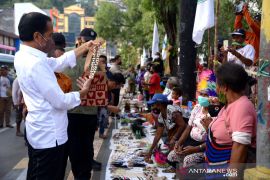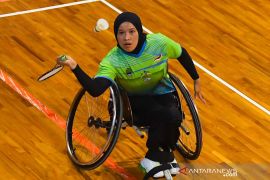Although their struggle and heroism were not that much different, the story of Paralympic athletes has been lesser known than of those who took part in the Olympics.
It is clear that the medal tally of Indonesian athletes with disabilities at the Tokyo Paralympics was higher (two golds, three silver, and four bronze medals) compared to athletes competing in the 2020 Tokyo Olympics.
In Tokyo, athletes with disabilities marked a new history in national sports because they were able to bag the most medals since the 1976 Paralympic games.
Citing historical records on the debut of Indonesian Paralympic athletes at the 1976 Toronto Paralympics, they were able to win six medals (two gold, one silver, and three bronze) and ranked 26th in the final standings.
At the 1980 Arnhem Paralympics, the Indonesian contingent took home two golds and four bronzes. At the Stoke Mandeville Paralympics/New York 1984, the contingent won one silver and one bronze, and two silver medals in the 1988 Seoul Paralympics.
After that, the Indonesian paralympic contingent was absent from 1992 to 2008. The Merah Putih contingent returned from the London 2012 Paralympics with one bronze medal.
Four years later, at the 2016 Rio de Janeiro Paralympics, Indonesia took home one bronze medal, and at the Tokyo 2020 Paralympics, Indonesia won nine medals and ranked 43rd in the final standings.
Throughout its participation in the Paralympics from 1976 to 2021, Indonesia has collected a total of 27 medals.
Reflecting on the achievements of athletes with disabilities in Indonesia, it is clear that they are a respectable valuable asset of this nation.
They have proven themselves in putting the nation's name on the world stage.
Related news: Minister Amali reviews Peparnas preparations in Papua
Choosing sports
So far, there has been no confirmed data on the number of people with disabilities throughout the country.
However, the temporary national data from the National Socioeconomic Survey (Susenas) in 2018 can be used as a benchmark to describe the overall population with disabilities and each type of disability, according to observers.
Based on the Susenas 2018 data, there are about 30.38 million people with disabilities, accounting for 14.2 percent of Indonesia's population. As mandated by the Constitution, the state must be present to provide protection and fulfillment of their basic rights as citizens without exception.
Unfortunately, until now, there is still a lot of discrimination and a lack of public attention to the needs of people with disabilities, including in terms of mobility, access to decent work, and access to education as well as legal protection, observers said.
Examples of discrimination include job requirements that say candidates need to be "healthy, physically and spiritually", which can be interpreted as the job applicants must have a "perfect" body, or not be disabled, they added.
Moreover, many people with disabilities come from poor families and are isolated from social services, so their existence is increasingly marginalized. They do not meet their nutritional needs and do not get special care, they said.
With all these limitations and restrictions, it is very understandable that a person with a disability prefers to take part in a sporting rather than taking up traditional work, observers said.
Sports activities do not have many requirements. Everyone has the right in joining a sports career, including people with disabilities.
Thus, sports has emerged as an accessible platform for people with disabilities to explore their talents so they can actualize themselves by competing and making achievements, observers said.
However, selecting and developing disabled athletes is a matter that needs to be paid attention to, they added. There is a long process of sweat, tears, and blood, where the struggle is twice that of a non-disabled athlete, they pointed out.
Their selection process is certainly different from that of non-disabled athletes, they said. For example, during the talent scouting process, a coach cannot simply ask someone with a disability to become a sportsperson, they added.
The coach must consider and understand the physical and psychological condition of prospective athletes with disabilities as there are many factors that cause a person to have a disability, observers said. The disability may be present since birth or caused by accidents, they added.
There are varieties of disabilities, among them are sensory disabilities, motor disabilities, intellectual disabilities, or multiple disabilities.
After the initial assessment, the selection team must determine what type of sport is most suitable or in accordance with the limitations and the interests of a prospective athlete.
The sports choices are focused on achievement sports, not just recreational sports or rehabilitation sports, observers said.
Another thing that is no less important is to provide facilities that can make them feel comfortable, thus the athletes will be more motivated to train and pursue their achievements, they added.
This is because these athletes have gone through a phase of unlimited struggle to conquer limitations.
Related news: President Jokowi rewards 2020 Paralympics athletes
Government's attention and Peparnas
The government has guaranteed non-discrimination for athletes with disabilities who become sports ambassadors and excel in national and international events.
They obtain bonuses and other forms of appreciation.
For medalists at the 2020 Tokyo Olympics, the government paid a bonus of Rp5.5 billion each for a gold medal, Rp2.5 billion for silver, and Rp1.5 billion for a bronze medal.
The same bonus was also awarded to all champion athletes at the Tokyo 2020 Paralympics. Meanwhile, athletes who did not win still got a bonus of Rp100 million.
This is nothing new and special as attention and appreciation for every international achievement that promotes the country's name should be a given.
There are more important and strategic matters that the government must look into: like how to ensure more talented athletes keep emerging, thus making sports a sustainable choice. The question of how the state can organize healthy sports championships that cover all levels of society must be considered, according to observers.
The state needs to be present in facilitating and guaranteeing a prosperous future when the athletes later enter retirement, they said.
All that – and of course all efforts to meet the achievement needs of disabled athletes – need to be accommodated in the implementation of the Grand Design of National Sports (DBON) that has been signed by President Joko Widodo (Jokowi) through Presidential Decree No. 86 of 2021. The decree coincided with the commemoration of National Sports Day on September 9, 2021.
The DBON road map will be carried out effectively, efficiently and in a measured, accountable, systematic, and sustainable manner in five stages until 2045.
The design will also reinforce equality between disability and non-disability sports, starting from the level of district/city to the national level.
In the context of equal treatment, on November 5, 2021, President Jokowi officially opened the 16th National Paralympic Week (Peparnas) in Papua.
About three thousand athletes with disabilities from 34 provinces in the country, who compete in 12 sports with 640 disciplines in Jayapura city and district.
The 861 gold, 861 silver, and 1,090 bronze medals are waiting for them.
Although Peparnas is not as popular and as big as PON, the spirit of athletes with disabilities from all over the country is worth celebrating.
Related news: President Jokowi to receive Indonesia's Paralympics contingent
Related news: Successful convening of Papua PON shows Jokowi-Amin's achievements
Editor: Rahmad Nasution
Copyright © ANTARA 2021
